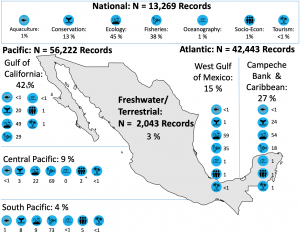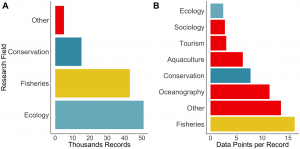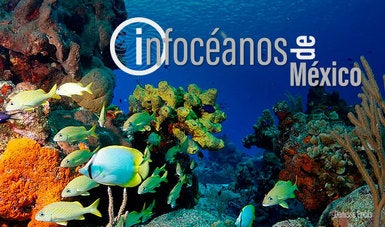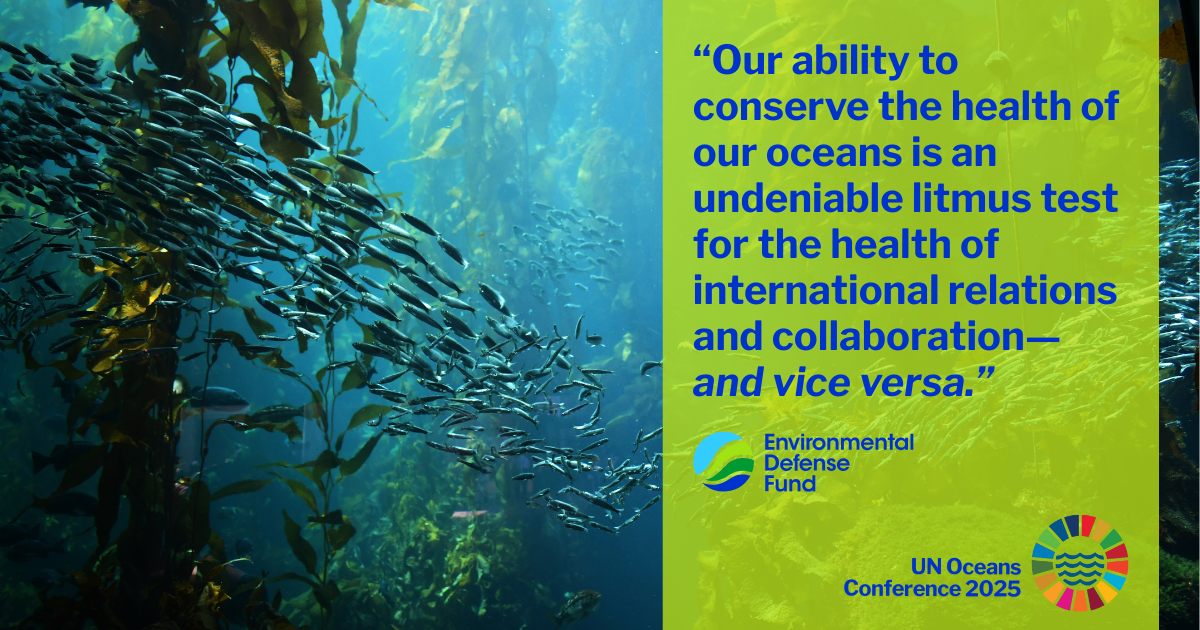Science is at the core of the sustainable management and conservation of Mexico’s marine resources
What if scientists, governments and citizens had access to a database that held everything we know about our oceans? This snapshot of the current state of science would be invaluable to understand the state of ocean health, would help build scientific solutions to climate-driven ocean problems and could spur new collaboration and amplify current conservation efforts.
Luckily for all of us passionate about the oceans in Mexico, this amazing database is not just a fantasy. It is now a reality in Mexico thanks to the collaborative efforts of Environmental Defense Fund (EDF) and Mexican researchers from several institutes including the University of British Columbia and the Mexican National Commission for the Knowledge and Use of Biodiversity (CONABIO).

Together we developed Infoceanos, a metadatabase that provides the most comprehensive snapshot of the current state of marine data in Mexico. Infoceanos is a free, public website with interactive interfaces that allow data visualization by species and region.
It represents a unique effort in the country. “We have created the most complete metadatabase of marine research in Mexico, since it gathers more than 130 thousand records representing more than two million data points from 215 databases,” says Juliano Palacios, one of the researchers and collaborators of the project. “Thanks to the National Commission for the Knowledge and Use of Biodiversity (CONABIO) in Mexico, the final product is an open-source and dynamic tool that can be accessed by anyone, and is open to the addition of new records. We hope that this multi-institutional effort helps improve marine conservation and management in Mexico.”
Infoceanos was built from the collaborative work of 14 researchers who were recently published in a PLOS ONE article. Their research focuses on building a metadatabase as a way to understand data about data, and use that information to design strategies to face pressing problems such as climate change.
Climate change is one of the main threats for our oceans, not only because of the impacts it will have on food security and conservation, but also because of the uncertainty of its extent. To face climate change and other critical challenges like poor management and pollution, we need to rely on robust data to inform effective environmental policies and protect our oceans.

In the case of Mexico – one of the main fishing countries in the world where over two million people rely on fishing for their livelihoods – the analysis derived from Infoceanos shows that most of the research done around the oceans focuses on ecology, biology and fisheries, while social and human dimensions are areas ripe for more research. At the same time, we found regional differences in terms of information availability. The Gulf of California, Campeche Bank and the Caribbean have the most data, while central and south Pacific and the western Gulf of Mexico have less data.
“Information about the state of our oceans is essential for the future of thousands of species, and millions of people who depend on seafood as their main source of food and employment,” says Andres Cisneros, a collaborator on Infoceanos and researcher at the Institute for Oceans and Fisheries of the University of British Columbia. “The information contained in this metadatabase has the potential to strengthen the knowledge and actions we need to secure the oceans and their resources in Mexico.”

Likewise, metadatabases can be a useful tool for other countries or regions in our effort to expand our knowledge about oceans and generate a worldwide scientific movement around marine conservation. In the case of Infoceanos, this effort started in Canada and was then adapted in Mexico, which exemplifies how this tool can help many countries around the world.
At EDF, we believe that information should lead to action. We hope that this multi-institutional effort helps improve marine conservation and management. Decision-makers can rely on this data to generate the necessary policies and reforms needed to overcome challenges like climate change so that we can still have more fish in the oceans, more food on the plate and more prosperous communities.













